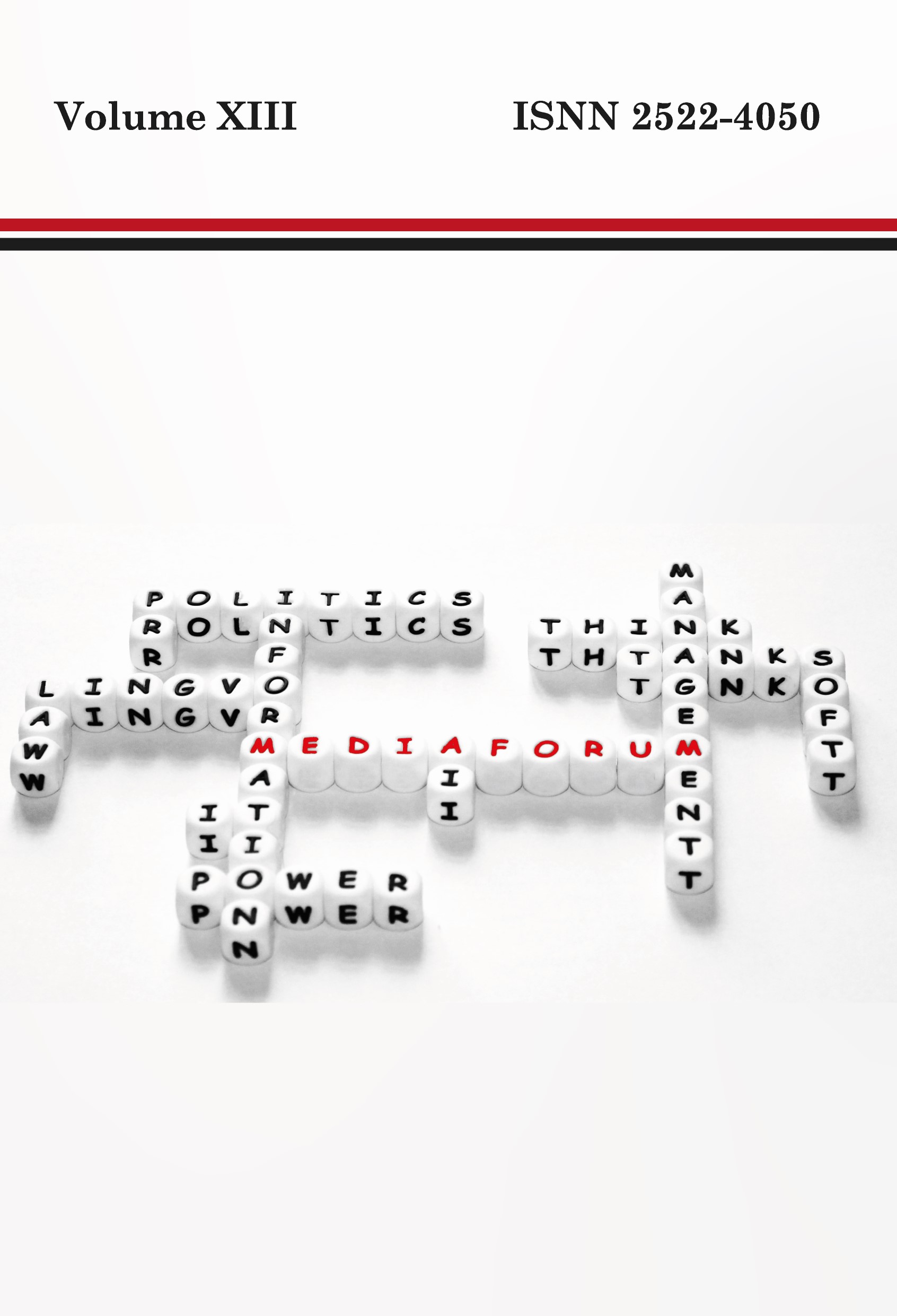AI аnd Machine Translation Post-editing: Advancements and Challenges (Insights for Students of International Studies)
DOI:
https://doi.org/10.31861/mediaforum.2023.13.198-209Keywords:
cognitive translation studies, higher education, generative AI, machine translation, post-editing, interdisciplinary approach, students, International StudiesAbstract
Now, with the appearance of the latest wave of a sophisticated generative artificial intelligence (AI), humanity is about to embark on an entirely new functioning order. The challenge today is that due to AI the world will definitely undergo drastic metamorphosis tomorrow, and again the day after. To adapt to this reinvented economy, people will need to reinvent their skills, careers – and, indeed, their lives. Therefore, educating people for reinvention in this fluid context will require the reinvention of higher education itself. According to Joseph E. Aoun, taking into consideration the targets to be met in the nearest future, the next generation of HEI students are supposed to be educated to invent, to create, and to discover – to meet society’s targets that any most sophisticated artificial intelligence agent cannot, consequently, a curriculum should include technological literacy, or understanding how machines work and how to work with them. Furthermore, the emergence of cognitive translation studies has stipulated an interdisciplinary approach to delve into the cognitive and behavioural aspects of a broad array of cross-language activities including all kinds of translation and interpreting. In a world that relentlessly pursues efficiency and productivity, the figure of a post-editor, a professional translator who has the skills to add that necessary human touch to a text which has previously been subjected to software algorithms, has become more prominent.
Downloads
References
Andres, F. Sempere-Ripoll, A. Esteso, M.M.E. Alemany 2022. “MAPPING BETWEEN INDUSTRY 5.0 AND EDUCATION 5.0”, EDULEARN 22 Proceedings, pp. 2921-2926. https://www.weforum.org/agenda/2023/05/3-ways-higher-education-can-prepare-for-generative-ai-revolution
Aoun, Joseph E. 2018. “Robot-Proof Higher Education in the Age of Artificial Intelligence”, The MIT Press. 216pp.
Aoun, Joseph E. 2023. “Here are 3 ways higher education can prepare for the generative AI revolution” //The Growth Summit: Jobs and Opportunity for All. https://www.weforum.org/agenda/2023/05/3-ways-higher-education-can-prepare-for-generative-ai-revolution/
Bohatyrets, V. 2023. “AI and Machine Translation PE (Post-editing): Advancements and Challenges” (plenary speech). VII International Conference of the UERA "Transformation of Education: Challenges of the Present”. https://drive.google.com/drive/u/0/my-drive
BOHATYRETS, VALENTYNA, KUDELKO, ZOYA, MELNYCHUK, LIUBOV. 2021. “Growing Synergy Between the Knowledge Society and Cognitive Translation Studies”, ANADISS, nr. 31 (I), 223–237
Brien, Sharon. 2004. “Machine Translatability and Post-Editing Effort: How do they relate?”. Translating and the Computer 26, London: Aslib. https://www.researchgate.net/publication/228784412_Machine_Translatability_and_Post-Editing_Effort_How_do_they_relate
Brown, Peter, John Cocke, Stephen Della Pietra, Vincent Della Pietra, Frederick Jelinek, Robert Mercer, and Paul Roossin. 1990. “A Statistical Approach to Machine Translation.” Computational Linguistics 16, no. 2: 79-85.
Carayannis, E.G., Morawska, J. 2023. “University and Education 5.0 for Emerging Trends, Policies and Practices in the Concept of Industry 5.0 and Society 5.0.” In: Machado, C.F., Davim, J.P. (eds) Industry 5.0. Springer, Cham. https://doi.org/10.1007/978-3-031-26232-6_1]
Carl, Michael. “Post-Editing Machine Translation Output.”. In Proceedings of the 8th International Conference on Language Resources and Evaluation (LREC 2012), 343-347.
CBS News New York. 2015. “Brooklyn Girl Behind Viral ‘Worst Day Ever’ Poem Speaks Exclusively With 1010 WINS”. CBS Broadcasting Inc. https://www.cbsnews.com/newyork/news/worst-day-ever-poem-goes-viral/
HARAHAP, N., LIMBONG C., SIMANJORANG, E. 2023. “THE EDUCATION IN ERA SOCIETY 5.0”. Jurnal Eduscience (JES). Volume 10, No. 1
Hawary, Mohammad EI. 2023. “Academics Map Opportunities to Benefit from AI in Arab Universities”. https://www.al-fanarmedia.org/2023/07/academics-map-opportunities-to-benefit-from-ai-in-arab-universities/
Jack Ma on the future of education (teamwork included). 2018. https://youtu.be/rHt-5-RyrJk
Koponen, M. & Salmi, L. (2017). “Post-editing quality: Analysing the correctness and necessity of post-editor corrections”. Linguistica Antverpiensia, New Series: Themes in Translation Studies, 16, 137–148. https://lanstts.uantwerpen.be/index.php/LANS-TTS/article
Singh, Nidhi. 2022. “Unlocking the Potential of IR 5.0: How Education 5.0 Can Meet the Needs of Industry 5.0”. https://www.linkedin.com/pulse/unlocking-potential-ir-50-how-education-can-meet-needs-nidhi-singh?trk=public_post
Students’ Translation of the Poem. April, 2023. https://www.canva.com/design/DAFgKw7oqyY/0WgAbgzwwpGau1cuUJkSVg/edit














